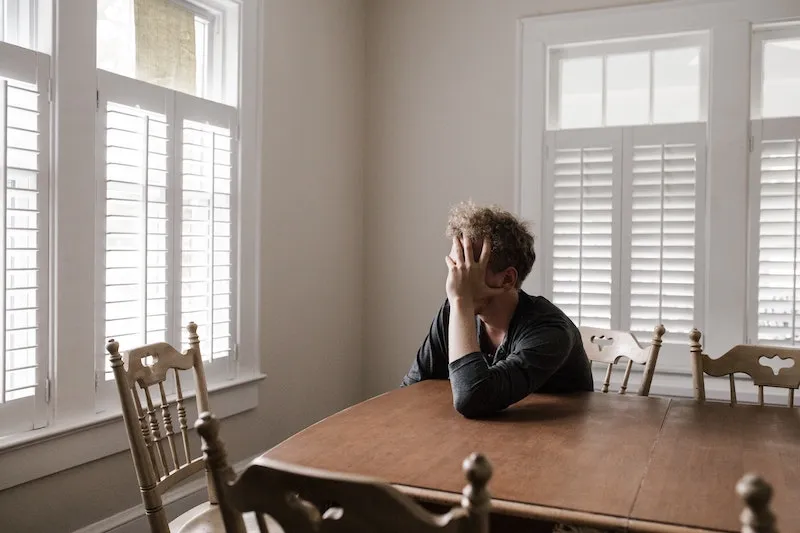Understanding the Difference Between Sadness and Depression
Mental Health Awareness: Life presents us with challenges that can evoke a range of emotions, including sadness. It’s natural to feel sad after experiencing a breakup, losing a loved one, or closing an important chapter of life. Sadness is a fundamental part of the human experience and usually fades with time as circumstances change. However, when sadness becomes persistent, overwhelming, and unconnected to specific events, it may be a sign of depression.
Sadness vs. Depression
Sadness is a temporary emotional response to specific events or situations. When something unfortunate happens, such as a major disappointment or personal loss, feeling sad is a normal reaction. Over time, the sadness lessens as individuals process their emotions and adjust to their circumstances. In most cases, people experiencing sadness can still find moments of joy and motivation.
Depression, however, is a more pervasive and complex condition. It does not always have a clear trigger and can impact every aspect of a person’s life. Depression extends beyond temporary sadness and can make even routine activities feel overwhelming. Individuals with depression often feel persistently hopeless, fatigued, and disconnected from the world around them. This condition can diminish one’s ability to function in daily life and negatively affect relationships, work, and personal well-being.
Recognizing the Symptoms of Depression
Depression is characterized by symptoms that persist for at least two weeks and significantly impact daily life. Key symptoms include:
Persistent Low Mood: A prolonged feeling of sadness, emptiness, or irritability that does not improve with time.
Loss of Interest: A decreased ability to enjoy activities that once brought pleasure.
Changes in Appetite or Weight: Noticeable weight loss or gain, or significant changes in eating habits.
Sleep Disturbances: Difficulty falling or staying asleep, or excessive sleeping.
Fatigue and Low Energy: Persistent exhaustion and difficulty completing everyday tasks.
Feelings of Worthlessness or Guilt: A deep sense of inadequacy, failure, or excessive self-blame.
Difficulty Concentrating: Struggles with focus, decision-making, and memory.
Suicidal Thoughts: Thoughts of death or self-harm, which require immediate professional support.
If someone experiences multiple symptoms for an extended period, they may be dealing with depression rather than temporary sadness.
Therapies for Depression
The good news is that depression is a treatable condition, and various therapies can help individuals regain control of their lives. Common treatments include:
Cognitive Behavioral Therapy (CBT): This form of therapy helps individuals recognize and change negative thought patterns that contribute to depression. CBT equips people with strategies to reframe negative thinking and develop healthier coping mechanisms.
Emotionally Focused Therapy (EFT): EFT focuses on emotional regulation and strengthening attachment bonds in relationships. It helps individuals identify negative emotional patterns and develop healthier ways to express and process emotions.
Accelerated Experiential Dynamic Psychotherapy (AEDP): AEDP is a therapeutic approach that focuses on harnessing resilience and processing emotions in a deep, transformative way. It encourages individuals to work through painful experiences in a supportive and healing environment.
Internal Family Systems (IFS): IFS helps individuals understand and integrate different aspects of their internal world. By identifying and addressing inner conflicts, IFS fosters self-compassion and emotional healing.
Medication: In some cases, antidepressant medications may be recommended to help regulate brain chemistry. Medication is often used in combination with therapy for the best results.
Lifestyle Changes: Regular exercise, a healthy diet, proper sleep, and mindfulness practices can positively impact mental health. These habits contribute to overall well-being and can help alleviate symptoms of depression.
Support Groups: Engaging with others who have experienced similar struggles can provide encouragement, validation, and a sense of belonging.
Mental Health Awareness: Seeking Help for Depression
If you or someone you know is struggling with depression, reaching out for professional help is essential. Depression can feel isolating, but support is available. Therapy provides a safe space to explore emotions, develop coping strategies, and regain a sense of purpose.
Overcoming depression is possible with the right treatment and support. If you are experiencing symptoms, consider speaking with a mental health professional who can guide you toward effective treatment options. Seeking help is a courageous step toward healing and a brighter future with Mental Health Awareness.

